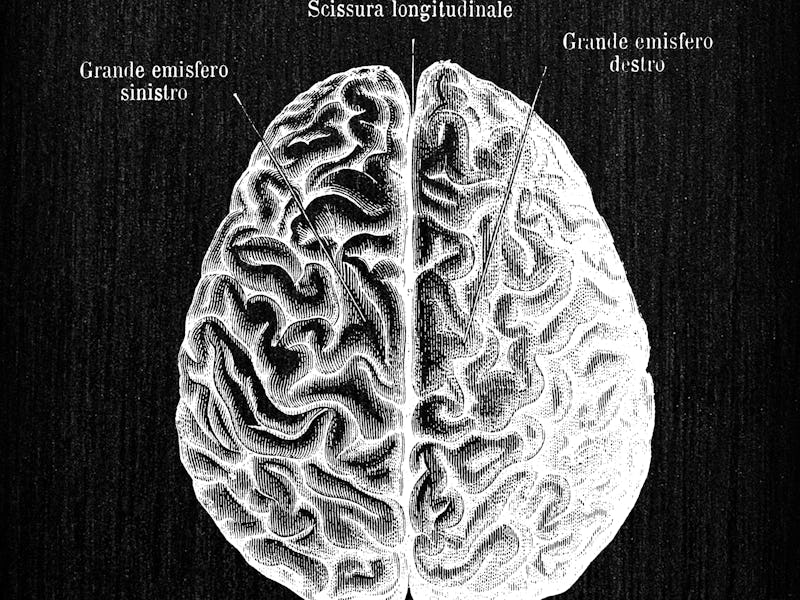
Mind games: How disasters caused by climate change are causing PTSD
The effects climate change has on the world is one thing. The effects climate change has on a person’s brain is something else entirely.
by Nick LucchesiTraumatic events play serious tricks on one’s mind. We all have those specific triggers that, when we experience them, cause the brain to immediately bring us back to terrifying memories we would rather forget.
“Smoky air and the oddly specific smell of the inside of an N95 mask bring me right back to packing up the house,” one wildfire survivor tells Tara Yarlagadda in a gripping new feature story.
The impact climate change has on the world is one thing. The impact climate change has on a person’s brain is something else entirely.
Keep reading to find out how raging wildfires in the American West are giving entire communities PTSD. People who never expected to see wildfire seasons that last most of the year, much less have their own homes burn down, are also dealing with the brain-changing stress in the aftermath.
Keep scrolling to read more about this critical story. I’m Nick Lucchesi, an editor at Inverse.
A technical note — We know our consecutive open counter is broken, and we’re trying to fix it. 🚧🚧🚧
This is an adapted version of the Inverse Daily newsletter for Wednesday, November 3, 2021. Subscribe for free and earn rewards for reading every day in your inbox. ✉️
“Being literally surrounded by three wildfires within 25 miles, living right on the edge of an open, uninhabited, wild space was terrifying,” a wildfire survivor tells Inverse.
In wildfire country, PTSD dominates burned-out communities — In this new feature, Tara Yarlagadda explores how the climate crisis threatens mental health:
Climate change threatens mental health: New research suggests climate change affects the wellbeing of nearly 50 percent of people between the ages of 16 to 25. Young people reported feelings of “climate anxiety and distress” alongside “feelings of betrayal” related to inadequate state and federal responses.
The climate crisis is both a mental health crisis and a crisis of faith. Even hearing reports of distant disasters can trigger anxiety and grief that can “even be transmitted to later generations,” scientists report in a 2020 study published in Frontiers in Psychiatry.
The emotional consequences of climate change are also happening now — driving increased alcohol use, high-risk coping behavior, and mental health disorders.
Related:
Organic molecules found on Mars for the first time — Passant Rabie reports that the Curiosity has rover detected organic molecules on Mars for the first time:
After spending 1,909 Martian sols on the Red Planet, NASA’s Curiosity rover was suffering from a slight malfunction. The robot’s drill stopped working while Curiosity was on Mars’ Vera Rubin ridge at the base of Mount Sharp. The rover had collected a sample of Martian dirt, and the team behind the mission decided to go a different route.
Instead of dropping the sample into one of the cups in the sample carousel, they dropped it into a cup pre-filled with a chemical mixture. The molecules released from the cup were then trapped and analyzed, revealing organic molecules on Mars that no space agency had previously detected.
Go deeper:
A mind-bending link between sea ice loss and U.S. wildfires — Anuradha Varanasi reports on new research suggests a connection between declines in Arctic sea ice loss and the conditions that exacerbate the likelihood of wildfires:
Climate scientists project Arctic sea ice might dwindle away almost completely before the 2050s.
Meanwhile, at a far lower latitude in the western United States, annual wildfires have become a grim routine in California, Oregon, and Colorado. While the West Coast of the United States is around 1,455 miles away from the Arctic, new research suggests they are connected by thick waves of air circulation.
Climate scientists have hypothesized this dynamic and long-distance connection between the two radically different regions could be the reason why high-latitude climate change in the Arctic may affect lower latitude regions like the western U.S. — further exacerbating the climate crisis.
More from the Arctic:
“Moonshot” tech could bring clean water to billions — Billions of people across the world don't have access to clean drinking water. Sarah Wells reports on a new study that says that a sustainable source can be pulled from thin air:
Engineers have been working on a much smaller-scale technology (roughly the size of a cornhole table) that would use the power of sunlight to snatch moisture from the air and condense it into drinkable water.
Such efforts may seem like, literally, grasping at thin air, but a recent analysis from Alphabet’s moonshot “factory” X (formerly Google X) has demonstrated that these technologies may have what it takes to make a significant impact.
“Our analysis demonstrates that daytime climate conditions may, in fact, be sufficient,” a researcher tells Inverse.
Related:
Happy birthday, Dolph Lundgren!
- About the newsletter: Do you think it can be improved? Have a story idea? Want to share a story about the time you met an astronaut? Send those thoughts and more to newsletter@inverse.com.
- Birthdays: Colin Kaepernick (34), Dolph Lundgren (64; pictured above), Anna Wintour (72), Kendall Jenner (26), Ella Mai (27).
- Song of the Day: “PTSD” by the late Brooklyn rapper Pop Smoke.